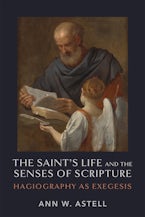“As a biblical scholar and historian of ancient Christianity, I knew next to nothing about Piers Plowman before reading David Aers’s completely accessible book, but I feel I have learned a huge amount from it. This magisterial and powerful exposition is certainly informative about a period of pre-Reformation English religious and political history not well known to many of us. But it is also timely for today. The book demonstrates how relevant Piers Plowman is, at least in Aers’s interpretation, for current epistemology, ecclesiology, politics, and religion.” —Dale Martin, Woolsey Professor of Religious Studies, Yale University
“David Aers, as a master interpreter, shows us how he reads Langland and, while doing so, instructs us in how to read. His brilliant essay models for us how it is possible, and indeed desirable, to open the usually well-policed border between theological reflection and literary analysis and thereby aim at a fuller reading of what a life of faith encompasses. Along the way, we gain an appreciation of William Langland’s formidable Middle English epic masterpiece, Piers Plowman, and the riches it repays our careful attention." —James Wetzel, Augustinian Endowed Chair in the Thought of St. Augustine and Professor of Philosophy, Villanova University
"Beyond Reformation? is a remarkable book by a master who has creatively invented a form to match and elucidate its complex and compelling object of attention. The book is designed for all readers interested in late medieval English and early modern literary and theological culture. Many scholars will read it, especially scholars of Middle English literature. It is less an introduction than a re-introduction of an extraordinary and very readable kind. I expect it to be received with lively acclaim within that large field." —James Simpson, Donald P. and Katherine B. Loker Professor of English, Harvard University
"Beyond Reformation? is a singular and immensely rewarding book, a theological meditation on the nature of the Church and the Christian life by means of a close engagement with the Middle-English poem Piers Plowman. Difficult to summarize, the book reads as something of a marvelous fugue, with themes and authors appearing, disappearing, and reappearing transformed into new guises as author David Aers imitates the dialectical processes of his poetic subject." —Reading Religion
“For those of us who have committed ourselves to the life-long study of the poem, Aers’ book offers a refreshingly clean and straightforward take on it—one that focuses on . . . a strong and consistent through-line that has consequences not only for us as readers of the poem, but also for us as sometimes unwilling participants in massive and coercive hierarchies of power.” —The Medieval Review
“Aers’s book is provocative, challenging, memorable, and rewarding.” —Modern Philology
“There is much to admire in this book . . . [it] has the advantage of Aers’s style of writing, which is very pleasant to read and often provides a poetic touch that reflects its source material.” —Renaissance and Reformation
“Even those most likely to disagree with Aers will find his ‘idiosyncratic little book’ very well worth reading. It is passionately sincere, richly informative, and always stimulating.” —Medium Aevum
“Overall, the work is an incredible display of scholarship, and few give the same level of details found in Aers’s writing. Aers has written a book that takes an incredibly complex discussion and made it surprisingly accessible to scholars from multiple disciplines.” —Sixteenth Century Journal
“The book’s resulting argument. . .are compelling and genuinely illuminating.” —Irish Theological Quarterly











